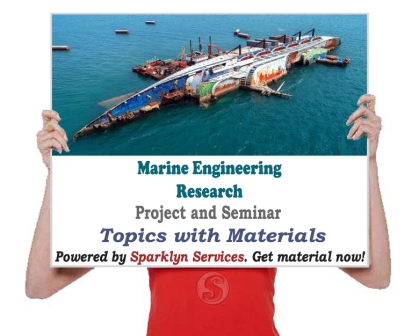1.1 Introduction
The ICS is the principal trade association for ship owners and operators which representation covers regulatory, operational and legal issues while ISF is the international employers’ organization for ship owners concerned with labour affairs and training issues. However, seafarers are always important to the shipping industry but are in serious shortage in the developed countries. In recent years, the increasing number of fleets around the world has made it difficult for shipping companies to find capable seafarers and. As a consequence, the major source of seafarers has shifted from developed countries to less developed countries, and then to underdeveloped countries (BIMCO/ISF, 2005; Glen, 2007; Lane, 2000).
As a prelude to other parts of this study, this chapter will discuss the background upon which this study was initiated, the statement of problems that led to this study, the Aim and Objectives of the study. Others are Significance of the study, Scope of work, Research hypothesis and questions, Limitations of the Study and Definition of technical terms.
1.2 Background of Study
The Nigerian maritime regulatory framework revolves around Acts related to the shipping industry enacted nationally and other international standards ratified by her. Legal and regulatory framework as relating the maritime industry is provided in the Nigerian Maritime Administration and Safety Agency (NIMASA) Act 2007: The NIMASA Act was established with the vested responsibility of overseeing and ensuring the development of the shipping industry and regulating matters relating to the merchant shipping and seafarers in Nigeria (Proshare, 2019). Other statutory functions of the Agency include implementation of IMO Conventions ratified by Nigeria, administration ship registration and licensing (Proshare, 2019).
In the recent decades, the shipping industries of Taiwan have been developing and expanding very fast. This has led to the shortage of seafarers become reality which in turn has pushed up the salary level of seafarers and forced the market players to hire seafarers from the “third world” countries. Most shipping companies have resorted to countries aboard to find enough seafarers to operate their ships. One may say that it is not hard to find seafarers but to find well-trained (skillful and experienced) seafarers and to keep them loyal to the company is the real challenges. Because the shipping companies of Taiwan have started hiring seafarers from the third-world countries 20 years ago, a lot of problems have arisen, recently.
The Act prohibits the use of foreign vessels in domestic coastal trade in order to promote the development of indigenous tonnage. As stated earlier, the Act establishes a Cabotage vessel Financing Fund (CVFF) to promote indigenous participation especially in building vessel acquisition capabilities through the provision of financial assistance to operators in the maritime sector. Specifically, the Cabotage Act precludes a vessel other than a vessel wholly owned and manned by Nigerian citizens, built and registered in Nigeria from engaging in the domestic coastal carriage of cargo and passengers within the coastal territorial inland waters, or any point within the waters of the exclusive economic zone of Nigeria (Proshare, 2019).
The maritime industry is adjudged the safest and more environmentally friendly mode of transportation. The industry’s safety is regulated internationally by the International Maritime Organization (IMO) and other United Nation’s agencies related thereto. In the Nigerian context, the regulatory and standards implementation aspects are domiciled with the Nigerian Maritime Administration and Safety Agency (NIMASA) and other related agencies.
Therefore, in Nigeria where the research was carried out, the activities that was conducted is to know the provisions of adequate employment and regulations for seafarers.
1.3 Statement of Problems
One of the most prominent problems facing the transport industry is the lack of adequate human resource development or manpower development to service the industry Okeudo and Ogwude, (2012). They further opined that, the human factor is the most sensitive and volatile of all factors of input in production and therefore requires proper handling so that the other factor inputs can be properly harnessed to the utmost advantage of all in the industry.
Despite the increasing effects on Training and retraining on worker performance in an organization, there is still limited literature on human resource development issues in developing countries (Debrah & Ofori 2006, 440) and increasing concerns from organization towards Seafarers performance.
1.4 Aim and Objectives of Study
The aim of the study is to investigate the provisions of adequate employment and regulations for seafarers in Nigeria. In achieving this aim, the following specific objectives were laid out as follows:
- To examine the factors instigating the provisions of adequate employment in Nigerian Ports Authority;
- To evaluate the laid out regulations governing the activities of seafarers in Nigerian Ports Authority;
- To find out if the regulations for seafarers increases the employees’ performance and productivity in Nigerian Ports Authority;
- To proffer solutions to the above stated problems of the affecting the provisions of adequate employment and regulations for seafarers in Nigeria.
1.5 Research Questions
The study came up with research questions so as to be able to ascertain the above stated objectives. The specific research questions for the study are stated below as follows:
- Are there factors instigating the provisions of adequate employment in Nigerian Ports Authority?
- Does regulation for seafarers increases the employees’ performance and productivity in Nigerian Ports Authority?
- What are the laid out regulations governing the activities of seafarers in Nigerian Ports Authority?




